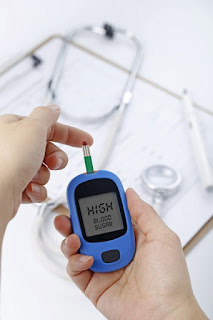Power and Peril of Glucose: Why Regulation is Key
Glucose, often called the body's primary fuel, is a simple sugar that powers everything from brain function to muscle movement. It’s the energy currency our cells rely on, making it essential for life. But like any powerful resource, glucose’s benefits come with a catch—it must be tightly regulated. Too much or too little can wreak havoc on our health. In this blog, we’ll explore why glucose is a double-edged sword and how proper regulation unlocks its positive impact.
The Vital Role of GlucoseEvery time you think, move, or even breathe, glucose is at work. It’s the preferred energy source for your brain, which consumes about 20% of your body’s energy despite being only 2% of your body weight. Glucose fuels red blood cells, supports muscle activity, and keeps vital organs humming. Found in carbohydrates like fruits, vegetables, and grains, it’s broken down during digestion and absorbed into the bloodstream to provide quick, accessible energy.
When glucose levels are balanced, you feel energized, focused, and ready to tackle the day. Studies show stable glucose levels improve cognitive performance, mood, and physical endurance. Athletes, for instance, rely on glucose (often from sports drinks or gels) to sustain performance during intense workouts. In short, glucose is a superstar when it’s doing its job right.
The Risks of Imbalance
But here’s the rub: too much or too little glucose can throw your body into chaos. Hyperglycemia (high blood sugar) and hypoglycemia (low blood sugar) are two sides of the same coin, and both spell trouble.
Too Much Glucose (Hyperglycemia): When glucose floods the bloodstream—often due to excessive carb intake, stress, or conditions like diabetes—it can damage blood vessels, nerves, and organs over time. Chronic high blood sugar is linked to heart disease, kidney failure, and vision loss. It’s like pouring too much fuel into an engine; it overheats and breaks down.
Too Little Glucose (Hypoglycemia): On the flip side, insufficient glucose starves your cells. This can happen from skipping meals, overexercising without proper nutrition, or insulin mismanagement in diabetes. Symptoms include shakiness, confusion, and, in severe cases, seizures or unconsciousness. Your brain, which depends heavily on glucose, grinds to a halt without enough of it.
The Art of RegulationThe body has a remarkable system for keeping glucose in check, primarily through the hormone insulin, produced by the pancreas. When you eat, insulin helps shuttle glucose into cells for energy or storage. Another hormone, glucagon, releases stored glucose when levels drop too low. This delicate dance keeps blood sugar within a narrow, healthy range (typically 70-100 mg/dL fasting).
But modern lifestyles can disrupt this balance. Diets high in refined sugars, sedentary habits, and chronic stress can overwhelm the body’s regulatory mechanisms, leading to insulin resistance or diabetes. Conversely, extreme dieting or overzealous exercise without proper fueling can cause dangerous dips in glucose.
How to Harness Glucose’s Benefits
To maximize glucose’s positive impact while avoiding its pitfalls, regulation is everything. Here are practical ways to keep your blood sugar in balance:Eat Smart: Choose complex carbohydrates like whole grains, legumes, and vegetables, which release glucose slowly and steadily. Pair carbs with protein, healthy fats, and fiber to slow digestion and prevent spikes. Avoid sugary drinks and processed snacks that flood your system with glucose.
Stay Active: Regular exercise improves insulin sensitivity, helping your cells use glucose efficiently. Aim for a mix of cardio and strength training, but don’t overdo it without proper nutrition to replenish glucose stores.
Monitor Stress: Chronic stress raises cortisol, which can elevate blood sugar. Practices like meditation, yoga, or even a quick walk can help keep stress—and glucose—in check.
Sleep Well: Poor sleep disrupts glucose metabolism and insulin sensitivity. Aim for 7-9 hours of quality sleep to support hormonal balance.
Consider Monitoring: For those with diabetes or suspected glucose issues, tools like continuous glucose monitors (CGMs) can provide real-time insights. Even for healthy individuals, occasional monitoring can reveal how your body responds to different foods and habits.
The Bigger PictureGlucose is a cornerstone of human biology, but its benefits shine only when it’s carefully managed. Unregulated, it can fuel chronic disease or acute crises. By understanding how glucose works and adopting habits that support its regulation, you can unlock its energy-giving potential while safeguarding your health.In a world of fad diets and conflicting health advice, the message is clear: respect glucose’s power, but don’t let it run wild. With mindful eating, regular movement, and a balanced lifestyle, you can keep this vital molecule working for you, not against you.
Note: Always consult a healthcare professional if you suspect glucose regulation issues or have diabetes-related concerns.




Comments
Post a Comment